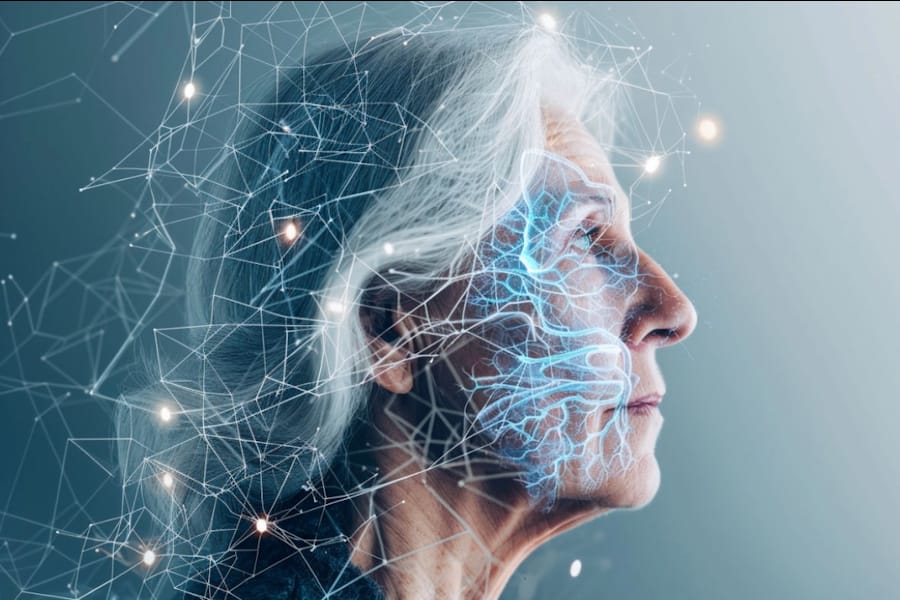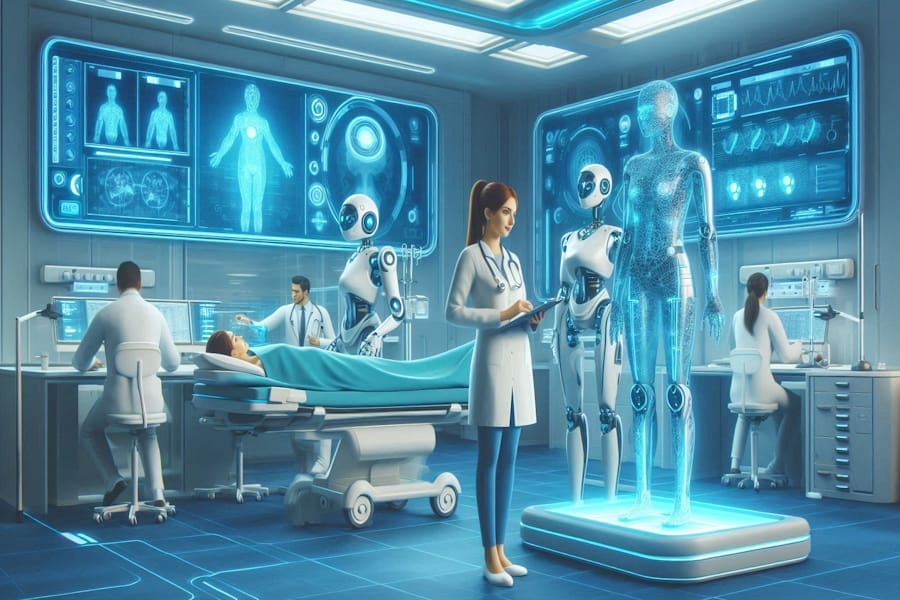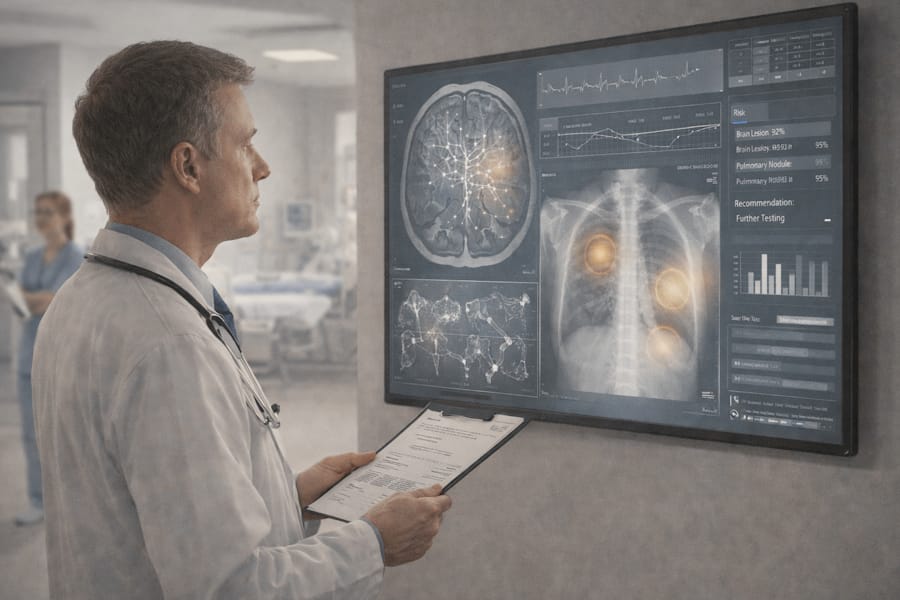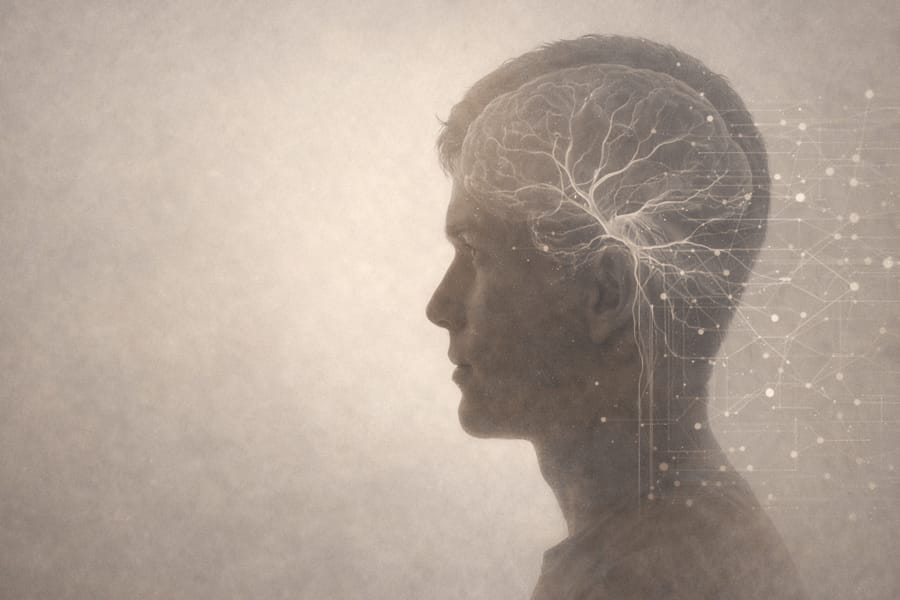Type: Article -> Category: AI Healthcare
AI as Memory Keeper: A Hope for Early Alzheimer’s Care

Publish Date: Last Updated: 13th January 2026
Author: nick smith- With the help of CHATGPT
As Alzheimer's disease quietly erodes memory and identity, emerging AI technologies are stepping in not just to detect and monitor, but to support and preserve the person within. Here's the cutting-edge work transforming early-stage care:
Early Detection & Prognosis
- Predicting risk years ahead: UC San Francisco researchers used machine learning on electronic health records—tracking conditions like high cholesterol and osteoporosis—to forecast Alzheimer’s up to seven years before symptoms, with ~72% accuracy.
- MRI + cognitive test power: Cambridge scientists developed an AI model that predicts progression from mild cognitive impairment (MCI) to Alzheimer’s with about 82% accuracy using only non-invasive scans and tests—three times better than standard clinical markers.
- Combining multi-dimensional data: Indiana University and others are integrating genomics, neuroimaging, and “omics” profiles to uncover subtle signals of early Alzheimer’s, helping classify subtypes and predict outcomes through sophisticated neural networks.
Cognitive Aid & Memory Preservation
- Automated reminiscence therapy: Pilot AI chatbots use personal photos and stories to guide memory conversations—simulating therapy sessions and enhancing engagement for those with mild cognitive impairment.
- AI-powered chat companions: New frameworks (e.g., "ReMe") offer interactive memory prompts and language puzzles based on personal life logs—stimulating episodic recall and personalized brain workouts.
- Digital biomarker tracking: Platforms like ADMarker use wearable sensors and federated ML to monitor daily activity, speech, gait, and routines—detecting patterns and subtle changes with ~89–94% accuracy while preserving privacy.
Assistive Devices & Tools
- AI glasses & smart wearables: Experimental devices, including AI-powered glasses and fall-detection sensors, are being trialed to help users identify objects, receive memory prompts, and maintain routines—supporting independence.
- Voice-based early screens: New speech-analysis algorithms can detect mild cognitive impairment across languages with high sensitivity—some reaching ~90% accuracy within minutes of conversation .
Legacy & Family Connection
Beyond real-time support, AI can preserve the “essence” of loved ones:
- Memory archives: Structured recording of stories, voice, and behaviors would allow families to interact with or reflect on their loved one’s personality long after diagnosis.
- Interactive memory vaults: Imagine conversational avatars—trained on years of collected memories—that can answer questions like “What did Grandma love doing?” or “Tell me about his childhood,” offering comfort and emotional connection.
Looking Ahead: Trials, Ethics & Integration
While promising, several hurdles must be addressed:
- Validation & standardisation: AI tools must be rigorously tested across diverse populations for accuracy, generalisability, and safety.
- Privacy & autonomy: Preservation of personal health data and consent, especially with digital memory tracking and interactive AI avatars.
- Human-centered design: Experts caution that AI should augment—not replace—the human touch critical in dementia care.
- Regulatory readiness: As tools like BrainSee gain approval, guidelines must evolve to include wearable devices, chat companions, and memory-archival systems.
Final Word
AI is reshaping Alzheimer’s care—from early detection to preserving identity and facilitating emotional connection. For individuals in the first stages of memory loss, the technology promises:
- Early warnings and personalised care plans
- In-the-moment reminders and conversational support
- A living legacy of personality and stories for families
While still emerging, these technologies suggest a future where Alzheimer’s patients can hold onto their essence—and their loved ones can remember not just the facts, but the person.
Latest AI Healthcare Articles
AI Questions and Answers section for AI as Memory Keeper: A Hope for Early Alzheimer’s Care
Welcome to a new feature where you can interact with our AI called Jeannie. You can ask her anything relating to this article. If this feature is available, you should see a small genie lamp above this text. Click on the lamp to start a chat or view the following questions that Jeannie has answered relating to AI as Memory Keeper: A Hope for Early Alzheimer’s Care.
Be the first to ask our Jeannie AI a question about this article
Look for the gold latern at the bottom right of your screen and click on it to enable Jeannie AI Chat.
Type: Article -> Category: AI Healthcare






